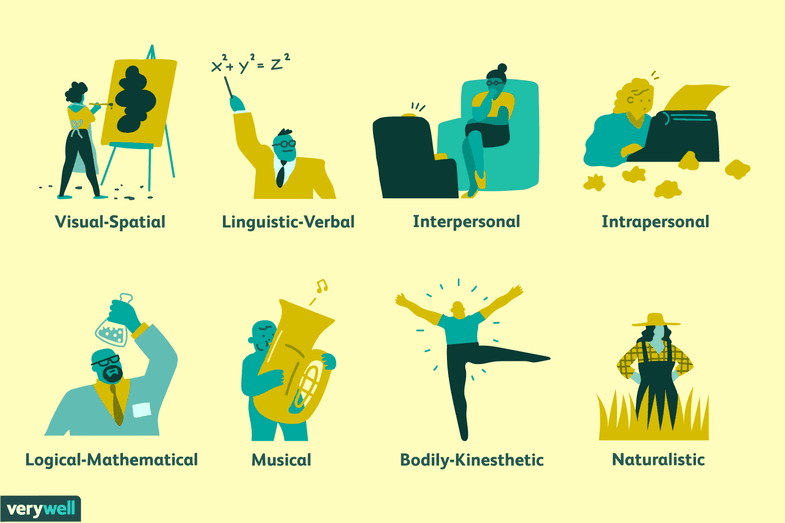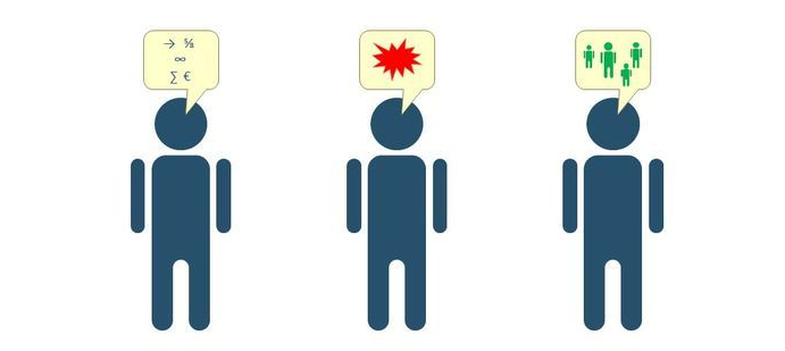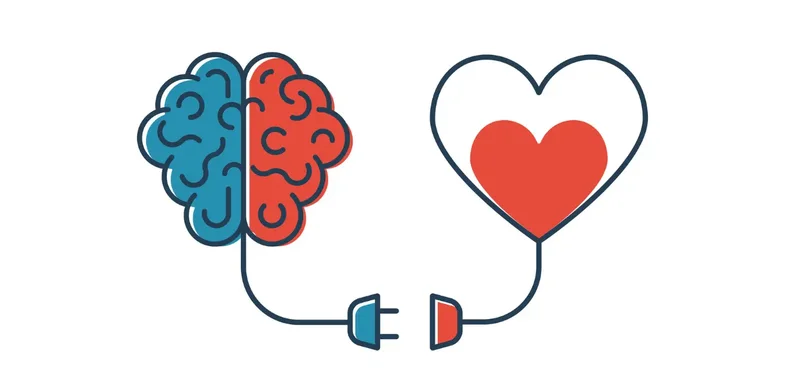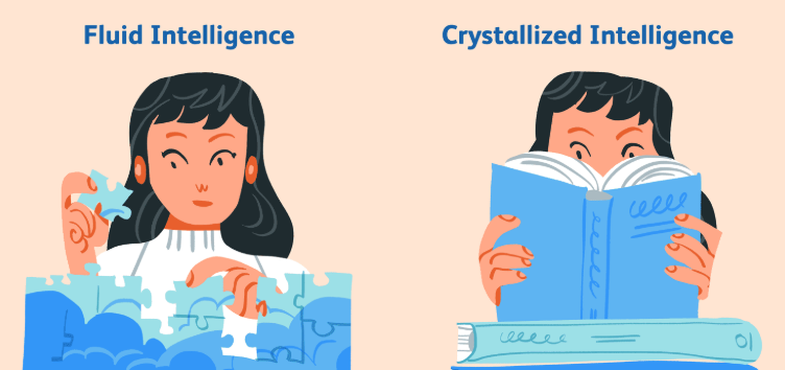
Laert Vasili and Gjesti have often been at the center of discussions (inside and outside the house) about their intelligence during their stay in the “Big Brother VIP” house. Laert has been considered very intelligent, thanks to his knowledge in various fields, while Gjesti has been perceived as less intelligent, due to viral gaffes and lack of knowledge in fields such as history, literature, culture, etc. But is intelligence really measured only by academic knowledge? What exactly is intelligence and how can we better understand it? In this article, we will analyze the concept of intelligence beyond common perceptions.
There are several ways to categorize intelligence, but one of the most widely accepted is Howard Gardner's "Theory of Multiple Intelligences" and it argues that there is no single intelligence, measured by IQ or other short-answer tests.
Howard Gardner, a professor at Harvard, developed the theory in the late 1970s and early 1980s. He drew evidence from a variety of sources, disciplines, and research traditions.

According to the theory, the types of intelligence are as follows:
Spatial intelligence: The ability to conceptualize or manipulate large-scale spatial surfaces or objects in space. For example: pilot, sailor, architect, graphic designer, sculptor, etc.
Bodily-kinesthetic intelligence: The ability to use the body, or different parts of the body, to solve problems or create products. For example: athletes, dancers, surgeons, actors, etc.
Musical intelligence: Sensitivity to rhythm, tone, melody, and timbre. May lead to the ability to sing, play musical instruments, and/or compose music. For example: conductor, drummer, composer, musician, etc.
Linguistic intelligence: Sensitivity to the meaning of words, their order, sound, inflection, and everything related to language; skills in language, writing, and communication. For example: poets, writers, speakers, journalists, translators, lawyers, etc.
Logical-mathematical intelligence: Ability in reasoning, problem solving, and mathematics. For example: scientist, engineer, economist, programmer, etc.
Social (interpersonal) intelligence: The ability to interact effectively with others, understanding the feelings, characters, and desires of others. For example: therapist, psychologist, politician, diplomat, teacher, salesperson.
Inteligjenca personale (vetë-inteligjenca): Ndjeshmëria ndaj qëllimeve dhe shqetësimeve, si dhe aftësia për të vepruar në bazë të tipareve personale. Kjo inteligjencë nuk është e veçantë për karriera specifike, por lidhet me të gjithë individët që bëjnë pjesë në një shoqëri komplekse moderne, ku secili duhet të marrë vendime të rëndësishme për veten.
Inteligjenca natyrore: Aftësia për të bërë dallime të shumta në natyrë. Për shembull: biolog, fermer, ambientalist etj.

Modele të tjera të inteligjencës përfshijnë:
1. Teoria Triarkike e Sternberg (inteligjenca analitike, krijuese dhe praktike)
Psikologu Robert Sternberg propozoi se inteligjenca nuk është një aftësi e vetme, por përbëhet nga tre lloje kryesore:
a) Inteligjenca analitike – Aftësia për të analizuar probleme, për të bërë arsyetime logjike dhe për të vlerësuar informacionin (e ngjashme me inteligjencën tradicionale që matet me testet IQ).
b) Inteligjenca krijuese – Aftësia për të menduar në mënyrë inovative, për të krijuar ide të reja dhe për të gjetur zgjidhje (e rëndësishme për artistët, shpikësit, sipërmarrësit).
c) Inteligjenca praktike – Aftësia për t’u përshtatur me situata reale dhe për të përdorur njohuritë në jetën e përditshme (shpesh quhet "inteligjenca e rrugës")
Sipas Sternberg, një individ mund të ketë një kombinim të këtyre inteligjencave, por zakonisht dominon njëra më shumë se të tjerat.

2. Inteligjenca Emocionale (EQ)
Inteligjenca emocionale është konceptuar nga Daniel Goleman dhe i referohet aftësisë për të njohur, kuptuar dhe menaxhuar emocionet e vetes dhe të të tjerëve. Ajo përbëhet nga pesë komponentë kryesorë:
- Vetëdija emocionale, aftësia për të kuptuar ndjenjat e tua.
- Vetë-rregullimi, lontrollimi i emocioneve dhe shmangia e reagimeve impulsive.
- Motivimi, përdorimi i emocioneve për të arritur qëllime afatgjata.
- Empatia, kuptimi i ndjenjave të të tjerëve dhe lidhja me ta në mënyrë efektive.
- Aftësitë sociale, ndërtimi i marrëdhënieve të shëndetshme dhe menaxhimi i konflikteve.
Një person me EQ të lartë është më i mirë në komunikim dhe ndërtimin e marrëdhënieve të suksesshme.

3. Inteligjenca e lëngshme vs. e kristalizuar (zgjidhja e problemeve vs. njohuritë e grumbulluara)
Ky koncept u propozua nga psikologu Raymond Cattell, i cili ndau inteligjencën në dy lloje kryesore:
- Inteligjenca e lëngshme (Fluid Intelligence) – Aftësia për të menduar logjikisht dhe për të zgjidhur probleme në situata të reja, pa u bazuar në njohuri të mëparshme. Kjo lloj inteligjence lidhet me kreativitetin dhe shkathtësinë mendore dhe priret të ulet me moshën.
- Crystallized Intelligence – Knowledge and skills acquired throughout life through experience and education. Includes language, vocabulary, and the ability to use accumulated information. This increases with age and experience.
Copyright Anabel.al / Reprinting without permission of the editorial staff is prohibited.





